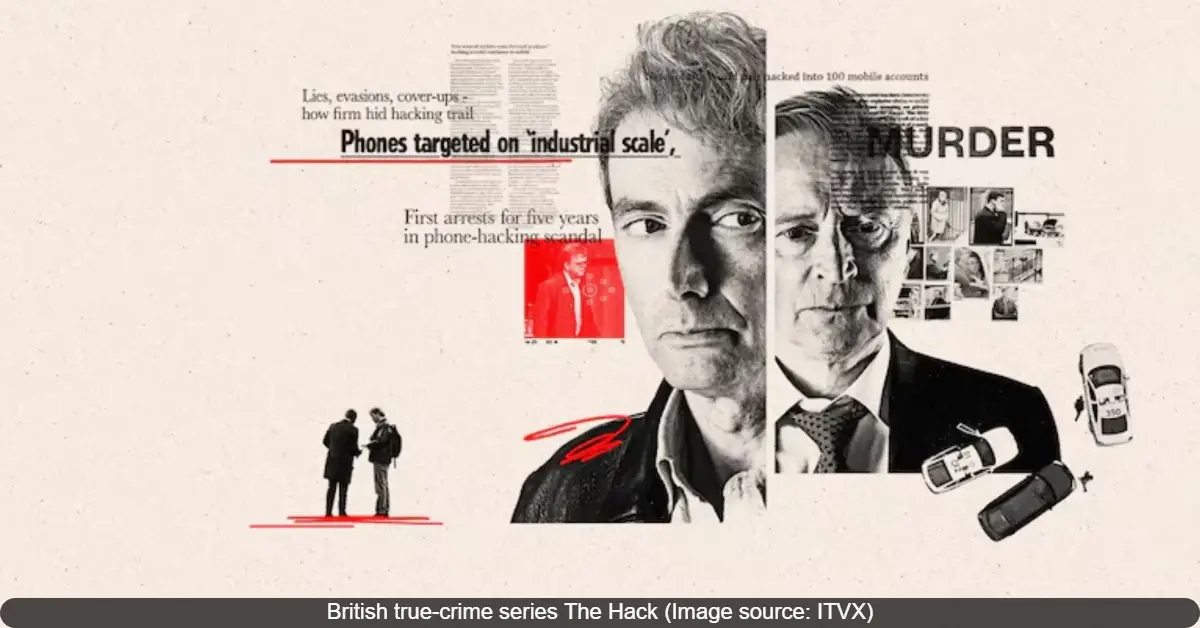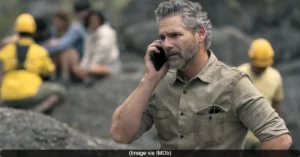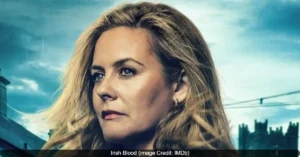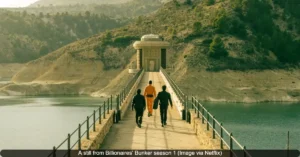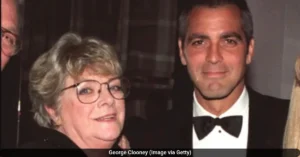The new British drama “The Hack“, which arrived on ITVX on September 24, 2025, tells the incredible true story of the investigation that exposed widespread corruption, leading to the collapse of Britain’s top-selling Sunday newspaper. The seven-part series follows two parallel stories: investigative journalist Nick Davies as he works to reveal the phone-hacking scandal at the News of the World, and Detective Chief Superintendent Dave Cook as he reopens the investigation into the 1987 murder of private investigator Daniel Morgan. The series shows how their paths cross, revealing a dark web of media corruption and police collusion.
The Two Investigations That Exposed the Truth
“The Hack” is set between 2002 and 2012 and blends fictionalized drama with real footage. On one side, it shows Nick Davies, played by David Tennant, who gets a cryptic tip in 2008 that the News of the World was involved in phone hacking on a massive scale. He soon realizes this was not the work of a single “rogue reporter,” but a systematic and widespread activity within the newspaper.
Running at the same time is the story of Dave Cook, played by Robert Carlyle, a detective who reopens the cold case of Daniel Morgan’s murder. Morgan, a private investigator, was found dead in a pub car park in 1987. His family had long claimed he was killed before he could expose police corruption. Cook’s investigation finds troubling links between Morgan’s death, the News of the World, and corrupt police officers. The series expertly weaves these two narratives together, showing a shared ecosystem of power, corruption, and cover-ups.
How the Phone-Hacking Scandal Unfolded
The phone-hacking scandal had been simmering for years before it exploded. In 2006, the News of the World’s royal editor, Clive Goodman, and a private investigator, Glenn Mulcaire, were arrested and jailed for hacking into the voicemails of members of the British royal family. The newspaper insisted this was an isolated incident and that no other reporters were involved. The editor at the time, Andy Coulson, resigned, claiming he knew nothing about the hacking.
However, Nick Davies at The Guardian kept digging. A confidential source, whom Davies refers to as “Mr. Apollo,” told him that phone hacking was widespread at the paper. Davies discovered evidence that contradicted the “rogue reporter” story, including an infamous email—known as the “email for Neville”—that contained transcripts of intercepted voicemails and was sent between journalists on the news desk. This proved that multiple people at the newspaper were involved in handling illegally obtained messages.
“Hacking voicemail is a long way from the most serious of crimes, but I think ruining people’s lives, it isn’t against the law, but it’s a very, very horrible, cruel thing to do,” Davies later said about the methods used by the News of the World.
Despite this evidence, the police were initially reluctant to reopen their investigation. It wasn’t until July 2011 that the scandal truly exploded, when Davies and his colleague Amelia Hill revealed that the News of the World had hacked the phone of Milly Dowler, a missing schoolgirl who was later found murdered. The newspaper had not only listened to her voicemails but had also deleted some messages to free up space, giving her family false hope that she was still alive. This revelation caused widespread public outrage and was the turning point that brought the media empire to its knees.
The Fallout and Final Reckoning
The public anger after the Milly Dowler revelation was immediate and intense. Advertisers pulled their campaigns from the News of the World in droves. Just days later, on July 7, 2011, James Murdoch, then the chairman of News Corporation, announced that the 168-year-old newspaper would be shut down. Its final edition was published on July 10, 2011.
The scandal led to the Leveson Inquiry, a major public investigation into the culture and ethics of the British press. It also led to a series of high-profile resignations and arrests. Rebekah Brooks, the CEO of News International, resigned. Andy Coulson was arrested and later jailed, along with other senior editors like Ian Edmondson. The Prime Minister’s director of communications, Andy Coulson, was also arrested, showing how close the ties were between the media giant and the highest levels of government.
Despite the public inquiry and criminal convictions, the ending of “The Hack” highlights a frustrating reality. While lower-level reporters and editors faced job losses and jail time, the most powerful figures largely avoided lasting consequences. Rupert Murdoch called his appearance at a parliamentary inquiry “the most humble day of my life.” Rebekah Brooks was found not guilty in her criminal trial and later returned to a senior role in the media industry.
The Emotional Final Scene
The series finale of “The Hack” ends on a powerful and emotional note. Investigative journalist Nick Davies is questioned by the father of Milly Dowler, who asks him, “Why would someone do this?” Davies explains that the journalists were chasing a story and overstepped every ethical boundary, abusing their power and violating the privacy of a grieving family. This quiet moment underscores the profound human cost of the scandal and the deep loss of trust in the media.
The final scenes show that while the News of the World was closed and some justice was served, the fight for full accountability continues. The murder of Daniel Morgan remains officially unsolved, and in 2021, an inquiry found the Metropolitan Police to be “institutionally corrupt” in its handling of that case. The series makes it clear that while the phone-hacking scandal exposed corruption at the highest levels, the systems that allowed it to happen are still being questioned today.
Also Read: Riv4lries Cast Guide: Meet the Stars of Netflix’s New Italian School Drama

